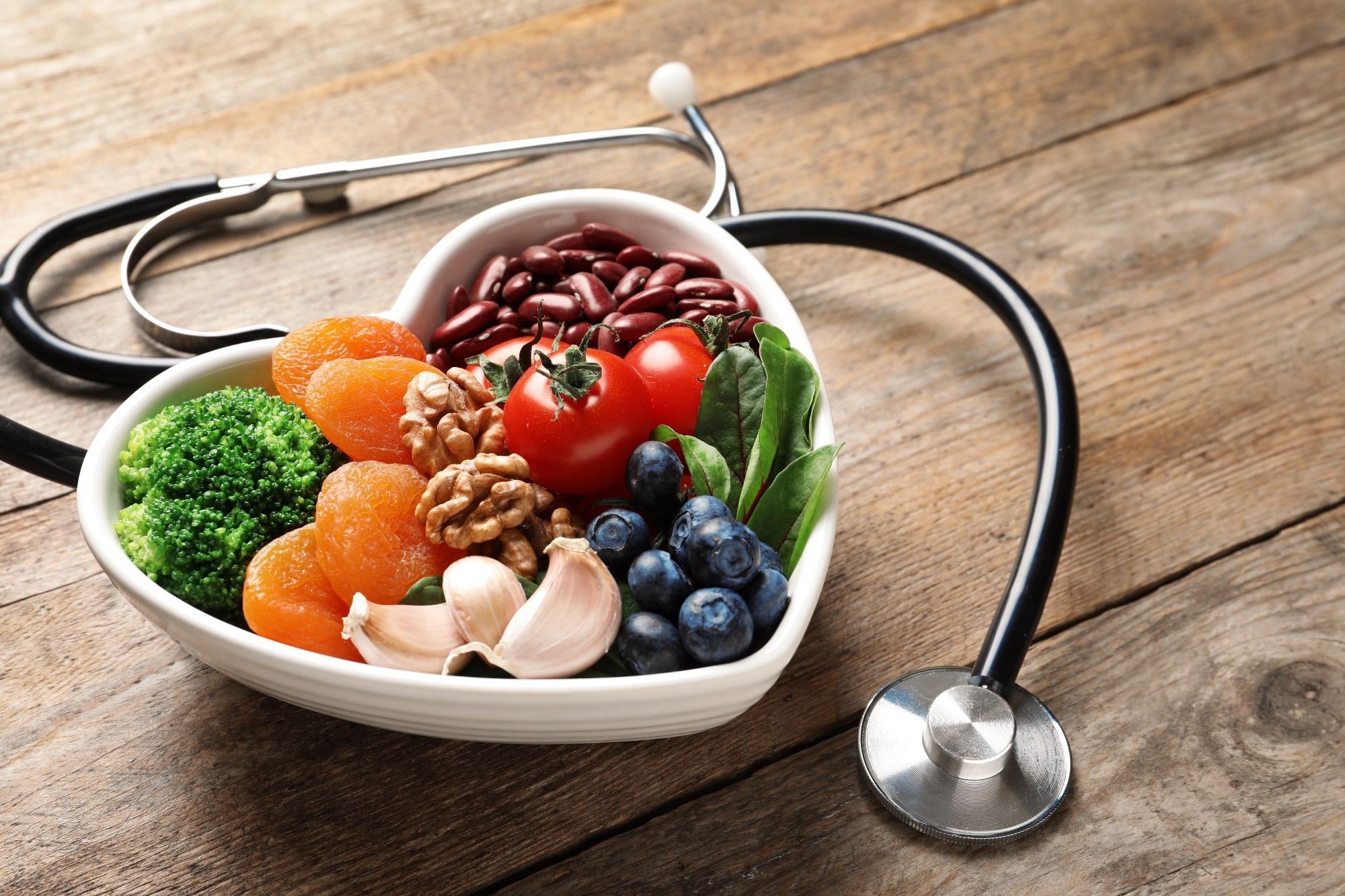Eating for a healthy heart is crucial; here are some tips for maintaining heart health. Maintaining a healthy gut is a primary concern for many people.
We often hear about the importance of a balanced diet and regular exercise for heart health. But what should we eat to keep our hearts in top condition? We will explore some critical dietary considerations for maintaining a healthy heart.
By incorporating these tips into our daily routine, we can nourish our hearts and reduce the risk of cardiovascular diseases. From choosing heart-friendly fats to incorporating more fruits and vegetables into our meals, these simple dietary changes can significantly impact our heart health. Let’s dive in and discover the power of nutrition in maintaining a healthy heart.

Credit: www.news-medical.net
Understanding Heart Health
Maintaining heart health is crucial for overall well-being. But what exactly does it mean to have a healthy heart? Heart health refers to the state of the cardiovascular system, which includes the heart and blood vessels. It involves various factors, including blood pressure, cholesterol levels, and overall fitness.
What is heart health?
Heart health refers to the optimal functioning of the heart and blood vessels. When your heart is healthy, it efficiently pumps blood throughout the body, supplying oxygen and nutrients to all organs and tissues.
Several factors can increase the risk of heart disease, including a sedentary lifestyle, poor diet, smoking, high blood pressure, high cholesterol levels, obesity, diabetes, and a family history of heart disease. It’s essential to be aware of these risk factors and take necessary steps to reduce them.

The Role Of Diet In Heart Health
Eating a healthy diet is crucial for maintaining a strong and healthy heart. Research has shown a clear link between diet and cardiovascular health. Consuming the proper nutrients can significantly reduce the risk of heart disease and other cardiovascular conditions.
Key nutrients essential for a healthy heart include omega-3 fatty acids in fatty fish like salmon and tuna, which can help lower blood pressure and reduce inflammation. Fiber from fruits, vegetables, and whole grains helps lower cholesterol levels and maintain a healthy weight. Antioxidants in berries, nuts, and dark chocolate protect against oxidative stress and inflammation.
On the other hand, certain foods should be avoided for heart health. These include trans fats in processed foods, fried items, and baked goods, as they increase harmful cholesterol levels and decrease good cholesterol levels. Excess sodium in processed meats, canned soups, and snacks can raise blood pressure. Consuming sugary drinks and foods high in added sugars can contribute to obesity and increase the risk of heart disease.
It is essential to make wise choices in your diet to ensure a healthy heart. You can significantly enhance your cardiovascular well-being by incorporating foods rich in critical nutrients and avoiding those detrimental to heart health.
How To Supercharge Your Cardiovascular Health Through Diet
How to Supercharge Your Cardiovascular Health Through Diet
The importance of a balanced diet: Maintaining a balanced diet is crucial for promoting a healthy heart. This means incorporating various heart-healthy foods low in saturated fats, cholesterol, and sodium while high in essential nutrients.
Heart-healthy foods to include in your diet: Include foods such as fruits and vegetables, which are packed with vitamins, minerals, and antioxidants that promote heart health. Opt for whole grains like quinoa and oats, as they are fiber-rich and can help lower cholesterol levels. Incorporate lean proteins such as fish, poultry, and beans, which are low in unhealthy fats. Don’t forget to add healthy fats from sources like avocados, nuts, and olive oil, which can help reduce inflammation and improve heart health.
Sample heart-healthy meal plan: Here’s an example of a heart-healthy meal plan to get you started:
| Meal | Food |
|---|---|
| Breakfast | Steel-cut oats with berries and a sprinkle of flaxseeds |
| Lunch | Grilled chicken salad with mixed greens, tomatoes, cucumbers, and a light vinaigrette dressing |
| Snack | Handful of almonds and an apple |
| Dinner | Baked salmon with roasted vegetables and quinoa |
By prioritizing a balanced diet filled with these heart-healthy foods, you can proactively protect your cardiovascular health.

Credit: www.bodhifitonline.com
Frequently Asked Questions About Eating For A Healthy Heart
What Is The Best Way To Eat For A Healthy Heart?
To eat for a healthy heart, focus on a balanced diet rich in fruits, vegetables, whole grains, lean proteins, and healthy fats. Limit your sugary, processed foods intake, and try incorporating regular exercise into your routine.
What Are The Three Foods That Heal Your Heart?
Foods that heal your heart include fatty fish, such as salmon, which is rich in omega-3 fatty acids. Other options are nuts and seeds packed with heart-healthy fats, like almonds and chia seeds. Lastly, dark chocolate with high cocoa content can also benefit heart health.
What Is A Heart-healthy Meal?
A heart-healthy meal is a nutritionally balanced dish that supports cardiovascular health. It typically includes lean proteins, whole grains, plenty of fruits and vegetables, and limited amounts of saturated fats, trans fats, sodium, and added sugars.
What Is The 3 Day Heart Diet?
The 3-day heart diet is a short-term diet that claims to help reduce weight and improve heart health. It involves a specific combination of foods to lower cholesterol and blood pressure levels. However, it is essential to consult a healthcare professional before starting any new diet.
Conclusion
Eating for a healthy heart is essential for maintaining overall well-being. You can significantly reduce the risk of heart disease by incorporating nutrient-rich foods, such as fruits, vegetables, whole grains, lean proteins, and healthy fats, into your daily diet. Remember to limit your intake of saturated and trans fats, added sugars, and sodium.
Making these small yet impactful changes to your eating habits can lead to long-term heart health and a happier, more fulfilling life. Take charge of your heart health today!